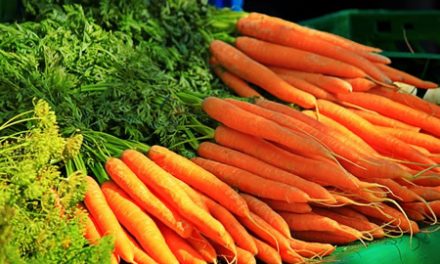Menopause is a natural step in a woman's life cycle, yet several body changes that accompany menopause pose problems for many women.
Fortunately, lifestyle choices may help women diminish common concerns, like weight gain and hot flashes.
Experience among women varies, but studies show that menopause is often linked to weight gain and a movement of fat from the thighs and hips to the waistline. Some women blame hormone replacement therapy (HRT), but studies show the opposite. HRT seems to lessen the shift of fat to the waist.
Women are right to be concerned about weight gain. A recent Finnish study found that each two pounds of weight gained during menopause raises the risk of high blood pressure five percent. Menopausal weight gain also raises the risk of diabetes and heart disease. Excess weight and weight gain in adulthood are both strongly linked to risk of breast and other hormone-related cancers after menopause.
Research shows that weight gain at menopause can be prevented or minimized. Weight gain at this time is often related to a drop in exercise level. To counter weight gain and weight shifts, women should keep physically fit with regular exercise. Strength-training exercise may offer special help in maintaining muscle mass and controlling weight. A lowfat, mostly plant-based diet is another aid. The American Institute for Cancer Research's brochure The New American Plate is an excellent approach to weight management that stresses both portion control and balanced food choices.
Studies confirm the ability of exercise and healthful eating to help control menopausal weight gain. A recent five-year exercise and diet study found that 55 percent of the menopausal women participants could maintain or even lose weight. The program involved a moderate exercise routine that burned 1,000 to 1,500 calories per week. Brisk walking for 30 to 45 minutes, five days a week is one way to fulfill this goal. The women also ate a lowfat diet that kept total calories low.
Hot flashes (or "hot flushes" as doctors call them) are another common menopause concern. A new Swedish study suggests that a vigorous exercise program and other steps to limit weight gain may reduce the tendency for hot flashes as a side benefit.
The regular use of soy foods might help, too. Since soy contains natural substances, especially isoflavones, that imitate the hormone estrogen, it might help to mitigate the effect of declining estrogen levels. However, studies so far have found soy helpful only for women who experience more than five hot flashes daily. Their hot flashes are generally reduced by 40 percent. If soy does work, it is still unclear how much is needed. It is also questionable whether foods and supplements fortified with isoflavones are as effective as soy foods themselves. The safety of large amounts of isoflavones for women with breast cancer or at risk of it is also unanswered.
An herbal treatment that may bring relief from hot flashes is black cohosh. The Office of Dietary Supplements (ODS), a branch of the National Institutes of Health, says that preliminary research on black cohosh is encouraging. A longer-term well-controlled study of safety and effectiveness is underway. Since a compound in black cohosh seems to have estrogenic activity, those with breast cancer should use it with extreme caution. Scientists do not yet understand the effects of the herb on breast tissue or breast cancer. Because black cohosh is sold as a dietary supplement, the FDA does not guarantee its safety, effectiveness, or consistency from batch to batch. Consumers may read more about this herb at the ODS website (http://ods.od.nih.gov).
AICR








